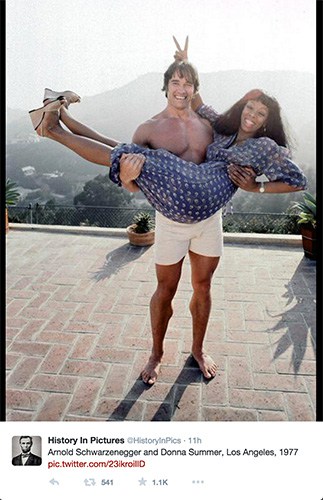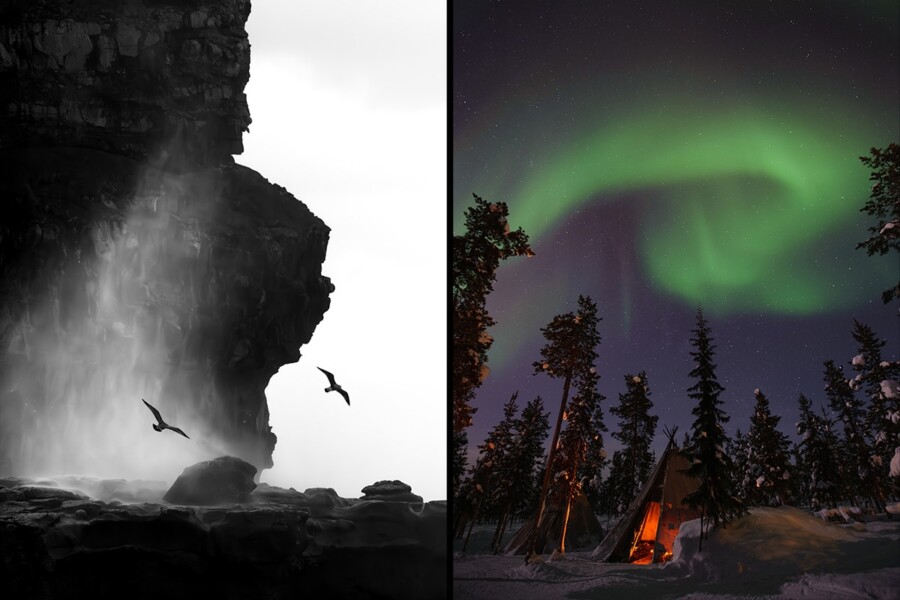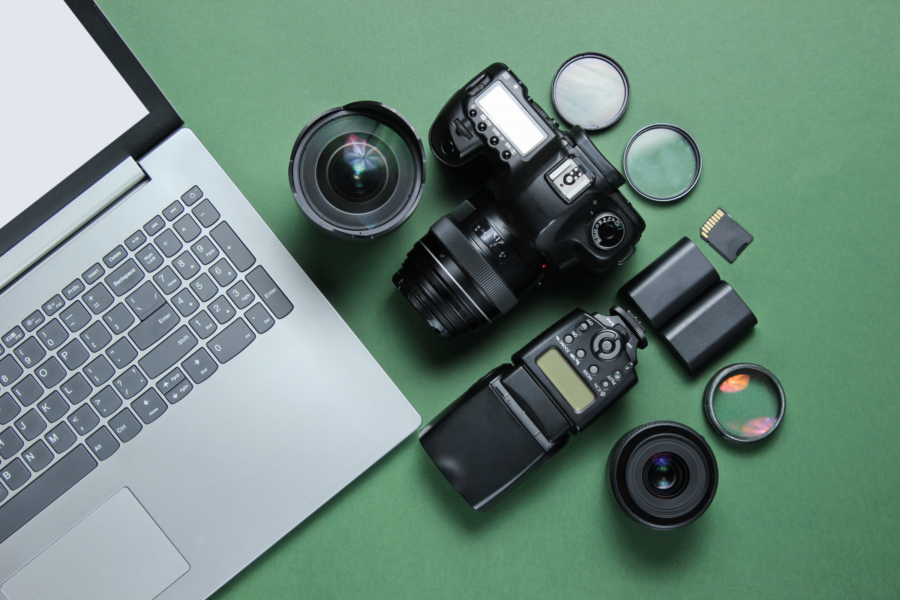Share
The Bad & Ugly in Photography 2014
We always celebrate Reasons to Love Photography, but that doesn’t mean that everything was hunky dory in 2014. Here is a brief compilation of th...

We always celebrate Reasons to Love Photography, but that doesn’t mean that everything was hunky dory in 2014. Here is a brief compilation of the not-so-good in the photo industry.
Richard Prince is a Jerk
In the world of music, sampling a riff is a veritable homage. With a few exceptions (see Ice, Vanilla), the crediting and licensing of a sample is standard operating procedure. That’s why the actions of appropriation artist Richard Prince are so infuriating. Under the premise of Fair Use, Prince steals someone else’s photo, makes a minor change, then sells it for hundreds of thousands of dollars without compensation to the source artist. This year, he continued the trend with some pretty lame Instagram appropriation.
Poon vs. Tang – The Groomzilla Lawyer
There are few things more morally bankrupt than a lawyer who bullies innocent citizens. Such was the case when the husband of Karen Poon sued Nelson Tang for $300,000 for negligence, negligent misrepresentation, negligent/intentional failure to disclose, breach of express warranty, and breach of implied warranty. Fortunately, Tang contacted Lightsphere inventor Gary Fong, who lept to his defense. Gary corralled experts and started a legal defense fund, and eventually had the suit dropped. Furthermore, he filed a complaint with the Washington State Bar, and Poon was forced to go through a rehabilitation program.
Stolen, Inaccurate Histories
While we certainly can’t fault anyone for promoting the study and appreciation of history, HistoryInPics isn’t doing anyone favors by not only stealing photos without attribution, but also affixing incorrect captions. On the other hand, why didn’t Corbis think of this first (and execute it accurately)?
Barbie was #Unapologetic
Should an #unapologetic Barbie doll get a 4-page spread in the Sports Illustrated swimsuit issue, implying that the hubbub around body image and Barbie’s unrealistic body proportions are much ado about nothing?
Drones Fall On People
2014 was the year of the drone. Amidst the amazing drone footage and FFA discussions, the price of high quality drones fell. But so did the drones themselves. There’s nothing like inexperienced operators to negatively sway the tide of public sentiment.
- http://gawker.com/drone-falls-on-athletes-head-during-triathlon-1559420088
- http://www.dailymail.co.uk/news/article-2395933/Fail-Photographers-drone-smacks-groom-head-looked-perfect-shot.html
- http://www.dailymail.co.uk/news/article-2866658/That-ll-kill-moment-TGI-Friday-s-mistletoe-drone-smashes-diner-face-slices-end-nose.html
Ami Vitale’s Stolen Image is Misattributed
It’s one thing to steal a photographer’s image, and another to misattribute and appropriate it for another cause entirely. Such was the case with Ami Vitale’s image from Guinea Bissau when it became the face of the #bringbackourgirls campaign against Boko Haram, the militant group that kidnapped 276 female students in Nigeria. Guinea Bissau is 1,000 miles from Nigeria (approximately the distance from NYC to Miami), the image was shot 3 years prior, and in the words of Vitale, “Can you imagine having your daughter’s image spread throughout the world as the face of sexual trafficking?”
Photojournalists Killed in the Line of Duty
The archetypal journalist uncovers truths that topples corrupt regimes. Sometimes they are targeted, and sometimes they are simply in a dangerous place at the wrong time. Whatever the case, the loss of life is tragic. 2014 was brutal for photojournalists.
- Anja Niedringhaus was shot and killed while covering the Afghan presidential election.
- 26-year old Camille Lepage was killed while photographing the conflict in the Central African Republic.
- James Foley was brutally beheaded by the Islamic State.
Syracuse Disinvites Michel du Cille
Syracuse University invited 3-time Pulitzer Prize Winner Michel du Cille to campus as a visiting professional for portfolio reviews during their S.I. Newhouse School of Communications Fall Workshop. Prior to the event, du Cille covered the Ebola crisis in Liberia for the Washington Post, and despite being symptom free for 21 days (the incubation period), Dean Lorraine Branham disinvited him over hysterical, and unfounded concerns. His wife, photojournalist Nikki Kahn, was also disinvited. du Cille was understandably furious that a journalism school would succumb to such fear mongering.
Two months later, du Cille tragically died of a sudden heart attack while working on a project back in Liberia. Thus, Syracuse will suffer an ignominious legacy of having deprived its students of one of the great photojournalists of our time over nothing.
Amazon’s Seamless Patent
Yes, there is a tremendous amount of specificity in the patent, but why on earth did Amazon really have to patent the photographing of an object against white seamless?
Peter Lik Sells the World’s Most Expensive Photo
If your friend painted his Honda Accord, then claimed to have sold it to a car aficionado for $6 million – no, in fact, he sold 3 Accords for a total of $10 million, do you think it would increase the sale price of Accords? Or do you think car salespeople and the general public would chuckle at the absurdity of the situation, no matter how nice the paint job?
We are absolutely supportive of commerce that increases the value and stature of photography, but the purported Lik sale only raises questions about the validity of high-end art photography (remember, it outsold the previous record holder by more than 50%). The most expensive image was a black-and-white conversion of an image that is being sold in a “limited edition” of 950. That isn’t to say that the art world isn’t abound with artists trying to prop the value of their work, but it’s hardly a distinction worth bragging about.
China’s Bad Photoshop
Given the wisdom of the crowd combined with all the forensic detection tools at our disposal, it’s almost charming that governmental regimes think they can Photoshop their propaganda images without encountering a healthy dose of skepticism. Last year, North Korea tried its hand, and this year, it was China’s turn during the pro-democracy protests in Hong Kong.
When a Stranger Thought a Father was Exploiting His Daughters
The post-9/11 world is filled platitudes about persistent threats. If you see something, say something. Ironically, the world is safer than it’s ever been and violent crime is near historical lows. It’s easy to fall back on an aphorism like “Better safe than sorry,” without taking time to analyze how that approach erodes public confidence and moral. Such was the case when Jeff Gates took an annual ferry ride to the Jersey Shore. As always, Gates took his two adopted daughters to the front of the ferry to capture a few snapshots, when his daughters were approached by an employee of the Department of Homeland security who asked, “I would be remiss if I didn’t ask if you were ok.”
The implication was that Gates was a creepy middle-aged guy exploiting young asian teens. Like many other photographers who have been harassed by law enforcement for simply taking a photo, the lack of understanding of the law combined with a steroid-fueled approach to enforcement only serves to widen the chasm between law enforcement and the citizens they are supposed to protect and serve.
Posting Celebrity Nudes
Whatever possessed hackers to believe that revenge porn (because that’s what it is) is a good thing is beyond us. For all the good that the Information Age has brought society, it has also allowed the ugliest parts of humanity surface while shrouded in anonymity adorned with the air of self-righteousness.
Yes, the women in question took nudes of themselves. No, they did not consent for you to hack, distribute and view them. Go cure cancer instead.
Mayor Points at Voter – Pointergate Erupts
Minneapolis Mayor Betsy Hodges was photographed with a community activist while canvasing a neighborhood to get out the vote. The mayor and activist pointed to one another, and soon the local TV station and Minneapolis Police Federation President John Delmonico were accusing the pair of flashing a known gang sign.
The reaction on social media against the allegation was swift and brutal, and the mayor pointed out that the accusation was likely the result of her critical comments against the police. You can only spin a story so far before the BS meters start ringing.
The Image as Weapon
TIME’s James Poniewozik wrote a compelling opinion piece on the rise of the image as a weapon. You mustn’t turn a blind eye to atrocities, but in the worlds of Poniewozik:
“These days, you can see almost anything. A lot of bad people know that and count on it. Sometimes the most powerful, most decent thing you can do is not to look.”





